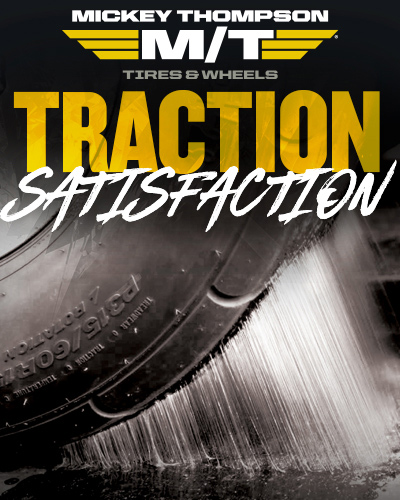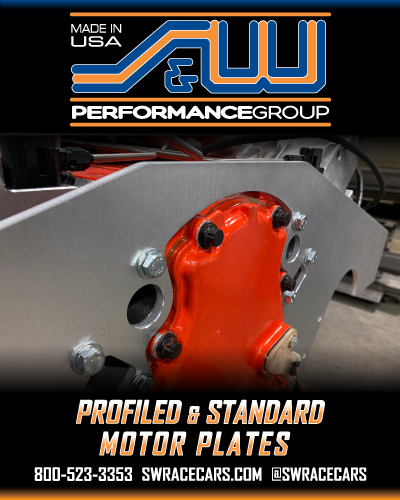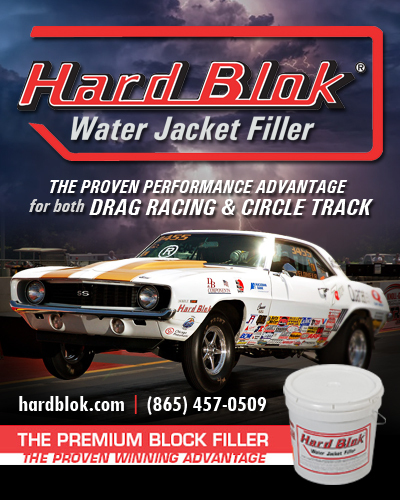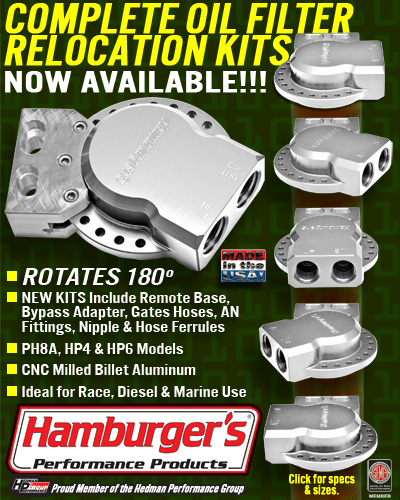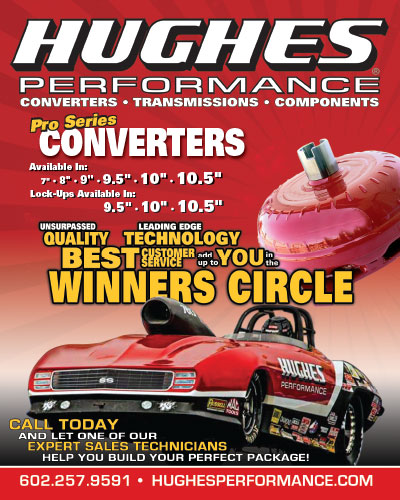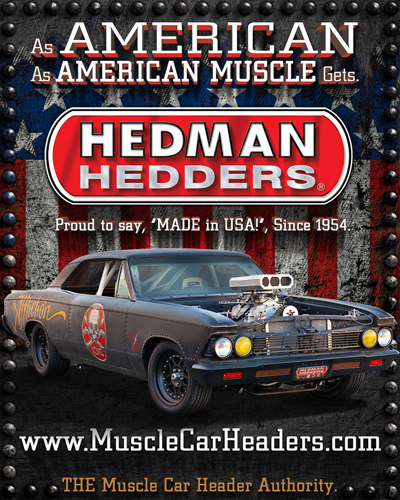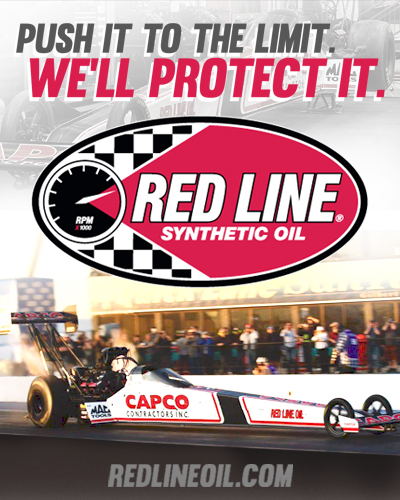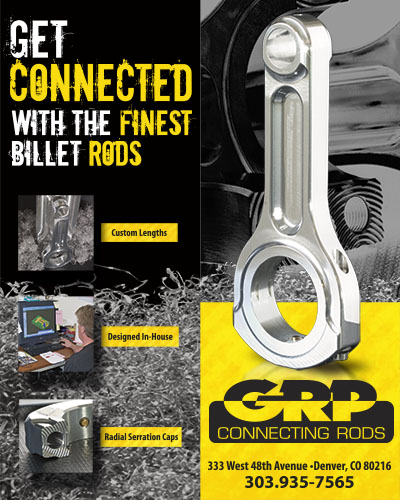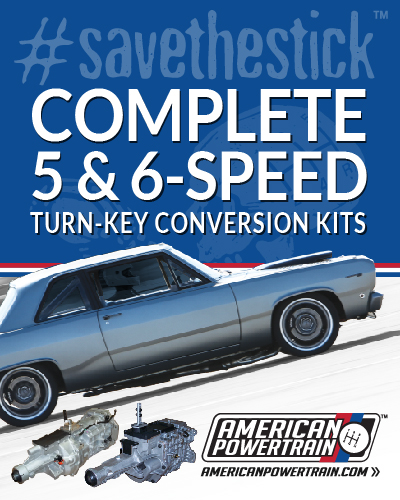WJ TALKS PAST AND PRESENT
Sat, 2007-04-21 12:11
Warren Johnson will become just the seventh member of the drag racing community
to enter the International Motorsports Hall of Fame when he is inducted on
Thursday, April 26. The six-time NHRA Pro Stock champion (1992-93, 1995,
1998-99, 2001), multiple national-record setter and driver of the GM Performance
Parts Pontiac GTO will join a select group representing drag racing in the
International Motorsports Hall of Fame that already includes Wally Parks, Bob
Glidden, Don Garlits, Shirley Muldowney, Don Prudhomme and Joe Amato. In
addition to Warren Johnson, the International Motorsports Hall of Fame class of
2007 will include Bruton Smith, Junie Donlavey, Ray Hendrick, Jack Ingram and
Wayne Rainey.
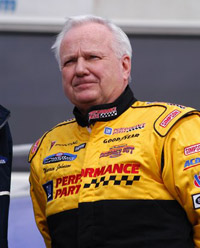 Warren Johnson will become just the seventh member of the drag racing community
to enter the International Motorsports Hall of Fame when he is inducted on
Thursday, April 26. The six-time NHRA Pro Stock champion (1992-93, 1995,
1998-99, 2001), multiple national-record setter and driver of the GM Performance
Parts Pontiac GTO will join a select group representing drag racing in the
International Motorsports Hall of Fame that already includes Wally Parks, Bob
Glidden, Don Garlits, Shirley Muldowney, Don Prudhomme and Joe Amato. In
addition to Warren Johnson, the International Motorsports Hall of Fame class of
2007 will include Bruton Smith, Junie Donlavey, Ray Hendrick, Jack Ingram and
Wayne Rainey.
Warren Johnson will become just the seventh member of the drag racing community
to enter the International Motorsports Hall of Fame when he is inducted on
Thursday, April 26. The six-time NHRA Pro Stock champion (1992-93, 1995,
1998-99, 2001), multiple national-record setter and driver of the GM Performance
Parts Pontiac GTO will join a select group representing drag racing in the
International Motorsports Hall of Fame that already includes Wally Parks, Bob
Glidden, Don Garlits, Shirley Muldowney, Don Prudhomme and Joe Amato. In
addition to Warren Johnson, the International Motorsports Hall of Fame class of
2007 will include Bruton Smith, Junie Donlavey, Ray Hendrick, Jack Ingram and
Wayne Rainey.
"I guess I won't really have a feel for the impact of it until I see all of the other members who were inducted previous to myself," said Johnson. "Everybody who has been inducted has had more of a passion for motorsports than anything else. Once you have a passion to do something, you do whatever it takes to be successful, at least in your own right at it, and then, if you're enjoying what you're doing, that gives you longevity."
The 63-year-old Johnson, commonly referred to as "The Professor" of Pro Stock, has surpassed numerous milestones during a career that spans four decades. Since 1971, Johnson has captured 96 national-event victories (second all time to John Force's 122), 136 No. 1 qualifying awards, 830 round wins (.681 winning percentage), six U.S. Nationals crowns, made 149 final-round appearances, set low elapsed time of the meet 139 times and ran top speed at 205 events. Johnson was the first Pro Stock competitor to exceed the 180-mph barrier (1982), the 190-mph barrier (1986) and the 200-mph barrier (1997), and he has set the national speed record on 25 separate occasions and the national elapsed-time mark 11 times. Johnson has won at least one national event in 24 of the last 25 race seasons, and at the 2006 ACDelco Nationals in Las Vegas, Johnson became the first professional driver in NHRA history to compete in 500 national events. In the following feature, Johnson discusses his early career, development of the GM DRCE, the decision to go professional drag racing full time, and the upcoming race at Atlanta Dragway.
WATCH VIDEO - Warren Johnson and NHRA drivers visit airmen at Spangdahlem Air Base, Germany; http://www.youtube.com/watch?v=CVSkR4jCmS0
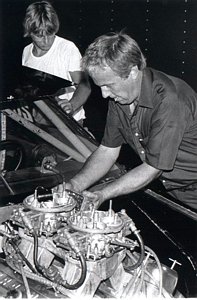 Does the fact that you are being inducted while still active add
any significance? "It certainly is a unique situation. However, the
full impact probably won't hit me until I'm in Talladega with my fellow
inductees, seeing those who have been inducted before me, so I'll have to
reserve my comments until I've actually experienced it."
Does the fact that you are being inducted while still active add
any significance? "It certainly is a unique situation. However, the
full impact probably won't hit me until I'm in Talladega with my fellow
inductees, seeing those who have been inducted before me, so I'll have to
reserve my comments until I've actually experienced it."
Were there any early influences on your career? "Actually, I really never had any influential personalities, if you will, because I've always been a type of person that I'm going to do it my way and that's just the way it's going to be. So I really haven't looked at anybody else's career or really taken a lot of interest in what anybody else has done because of the fact that they did it their way, and what I'm doing, I'm going to do my way."
How did you become interested in drag racing? "Actually, about 1963 or '64 was the first time that I ever went to the dragstrip. Being raised in northern Minnesota we had a lot of open space up there. Guys would get together, and we'd have our impromptu drag races on some stretch of straight road, and in fact, there were a couple of instances where the sheriffs just blocked the road off so that we could have some fun. That's really where it started for me, plus, I've always had an extremely strong interest in mechanical things. One thing led to another, and when I moved to Minneapolis to further my education at the University of Minnesota, I was going to school at night and working during the day. I started as a welder in a structural steel shop and ended up running that whole thing, and then went to another fabricating shop, which we did a lot of tubular work for snowmobiles. In fact, we did all the tubular work for a majority of snowmobile manufacturers in North America and Canada. From there I went to an automotive machine shop, and in the meantime I was building engines in my basement for people, and when I started at the machine shop, I ultimately ended up buying that out. When I had that paid for, I decided I was winning at just about everything I built engines for, so I figured this racing thing might not be a bad deal if I do it right. Obviously, if I'd been down South I would have been involved in round-track racing, but in Minnesota, at the time, round-track racing wasn't all that big, and the drag racing thing just came along. That's where it all started full time in 1976."
Was drag racing big in Minnesota at the time? "Well, there weren't a lot of tracks in Minnesota at the time, probably only four tracks, but Wisconsin had tracks, Iowa had tracks, and obviously, Illinois and Indiana. I started running that UDRA circuit that was based out of Chicago where we would run two or three, at least a couple of tracks, on a weekend. If it was over a 500-mile drive we would run a track at one location on Saturday and then another one that was relatively close on Sunday. That was where I really got my appetite whetted for drag racing. We were racing probably just about every weekend during the summer. That's where it all started. After I had the shop paid off, I believe in about 1973 or somewhere around there, that's when I started looking at racing full time. I made the plunge in 1976, which a lot of people thought I was absolutely nuts because that was right after the first fuel crisis in this country. It kind of mushroomed from there."
Was that a big decision for you to go full-time drag racing? "No, because I'm the type of person that once I'm committed to something, come hell or high water, I'm going to figure out how to make a living at it."
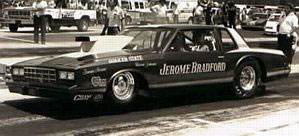 Your aptitude for engine development,
where did that come from? "That came from a very early age. I was
raised on a farm in Northern Minnesota. My dad was an operating engineer who did
a lot of overseas jobs in Greenland, worked in Alaska, and what not, and he was
gone quite a bit of the time. Being on a farm, we had to figure out how to keep
things running. My brother and I, he's a couple of years younger than I am, we
were overhauling cars when we were probably 10 or 12 years
old."
Your aptitude for engine development,
where did that come from? "That came from a very early age. I was
raised on a farm in Northern Minnesota. My dad was an operating engineer who did
a lot of overseas jobs in Greenland, worked in Alaska, and what not, and he was
gone quite a bit of the time. Being on a farm, we had to figure out how to keep
things running. My brother and I, he's a couple of years younger than I am, we
were overhauling cars when we were probably 10 or 12 years
old."
When did you realize that this was something you could do rather well, both building engines and horsepower? "I don't know if I ever realized at any specific point in time if I at least had an aptitude for it. It's one of those that just progressed. It could have been when I raced someone for the first time. Like I said, we had a lot of our impromptu races on sections of the highway up in Northern Minnesota, and I always had a pretty fast car."
You've had a long relationship with GM, about as long as anyone in motorsports. How did that begin? "That started back in 1983 when Oldsmobile wanted to commemorate the anniversary of the Hurst Olds. They were vacillating back and forth between Glidden and myself, and I ultimately ended up with the program over there and I was with Oldsmobile until, I believe 1995 or '96, and then Pontiac basically took over Oldsmobile's contract verbatim. I've been with Pontiac ever since. I've had a long relationship with General Motors and part of that program with Oldsmobile was that they wanted their own engine They didn't want to use a Chevrolet engine, a generic GM engine. They wanted their own identity. That was part of the program, for me to design an engine for their 500 cubic-inch Pro Stock efforts. That's where the DRCE1 came from, and then I redesigned it in 1991 for the DRCE2, and then in 2001 for the DRCE3. I've been involved in the design work of all their drag racing engines.
"We didn't want to completely invent the whole wheel, so we used the same crankshafts that they used in the Chevrolet and that was really the only piece that we used out of the Chevrolet. We were up against some extremely tight time constraints on it so we had to basically use what was available, what was something involved in long-term production, and at that point in time it was anywhere from 12 to 16 weeks to get a crankshaft. The whole program started in October, so with that in mind, the Winternationals was not that far away, so we elected to use the Chevrolet crankshaft. It had proven to be a very durable piece already so there was no sense in fixing something that wasn't broken."
Which is one of the most successful engine designs in drag racing. "It's won a majority of races I'd have to say. It's been a very durable piece and it's held up nicely over the years, although it's needed a tune-up every so often. I'm currently working on another version right now that we'll debut in another year or so. If we can get the funding for the tooling, we'll make another impact again."
It also seems like you've raced nothing but GM brands, at least since the early 1970s. "Actually, I started out with the Chevrolet stuff, the Camaros. In the early '70s, actually, I started out with a Vega, then a Camaro, and then I built a 1979 Oldsmobile Starfire, which was basically the same body as the Monza was. Dale Smith from Oldsmobile took note of that and that's where the whole relationship with Oldsmobile started back in '79, and then he formally offered me that program in 1983."
Who have you enjoyed racing against over the years? "Obviously, Glidden and I had, at least on the surface, a considerable rivalry going. But I got along fine with Bob and we probably raced each other for 15 years, 20 years down there, and he won some and I won some. Fortunately, it was a Ford versus Chevrolet thing which was great as far as the fans were concerned. That was probably one of the better, it wasn't really a rivalry, but it was probably the best publicized of the people I raced. That brought a lot of fans in the stands, especially being a Ford versus Chevrolet thing, and it was in the muscle-car era, it was a great battle. Then you mix in the Mopar stuff on top of that, and I raced quite a few Mopars over the years. It seemed to work out very well as far as the fans were concerned."
Does any one race in your career stand out? "In reality, I would have to look at the bank deposits from Monday morning to see which one paid the best (laughs). However, if forced to choose, I would have to pick the 1999 U.S. Nationals in Indianapolis when we won in the Superman car because it was a once in a lifetime opportunity, and we were able to capitalize on it."
What accomplishment are you most proud of - on or off the track? "I've never had a chance to actually gauge it, but if I have had a positive impact on younger people that would be the highlight of my career, because what I accomplished on the track, we did as a team. Throughout my life, I have been an extremely focused individual, and if I've been able to convince some kids to get enough of a focus to accomplish whatever they want to do in life, whether it's on the racetrack or off, that is something I can be very proud of."
Are there other forms of racing you enjoy? "I enjoy watching all forms of racing. Competition is competition is competition is the way I look at it. I always look at it from the mechanical aspect of it. You do something long enough, and intensely enough, and you tend to get tunnel vision. You want to stay away from that as much as possible, so I'd watch other forms of racing, just from the standpoint that they attack a problem in a different fashion and sometimes that gives you a new focus or a new direction to go in. I enjoy all forms of motorsports."
Your son Kurt plays a key role in your race program, and has for a long time. Would you like to see your grandkids involved someday? "You can never predict that, just like we couldn't predict that Kurt was going to be involved in this thing. He originally wanted to be an optometrist, and that fell by the wayside and I guess racing was second in line. You really can't predict that. Whatever they want to do is fine with me, as long as they do it intensely enough that they are successful at it."
Is there satisfaction in seeing Kurt's acumen grow over the years in the engine development program? "Absolutely. For him to take his part of the program, which is basically the assembly of the engines and dyno tuning them, and so forth, and take that end of the business and do well at it, there's certainly an amount of pride and satisfaction in that."
For the last two years, you've had an opportunity to join a group of drivers on a trip to visit American troops in Germany. What did it mean to you to be a part of that? "It's probably one of the most satisfying things I've done in my career. For us, as a group to go over there, and give a little bit back in return for the immense sacrifices that all of them have made, I mean, it was definitely more of an opportunity than a request to just do something. It was something all of us, collectively, felt we really needed to do."
WATCH VIDEO - Warren Johnson and NHRA drivers visit staff and personnel at Landstuhl Regional Medical Center, Germany; http://www.youtube.com/watch?v=zbx9Q_cz3no
WATCH VIDEO - Warren Johnson's impromptu tech talk with airmen at Ramstein Air Base, Germany; http://www.youtube.com/watch?v=-n6k-FQx1r0
You're only the seventh member of the drag racing community to be inducted into the International Motorsports Hall of Fame - a tremendous honor. "I guess I won't really have a feel for the impact of it until I see all of the other members who were inducted previous to myself. I'm sure that what all that probably says out of that is that everybody who has been inducted has had more of a passion for motorsports than anything else. Once you have a passion to do something, you do whatever it takes to be successful, at least in your own right at it, and then, if you're enjoying what you're doing, that gives you longevity."
You've struggled early in the season, but now it looks like things are starting to come around. After five races, you're only 43 points outside the top five. Things are beginning to fall into place for your program. "Performance-wise, we really weren't too far off the page the first couple of races, and driving-wise, I just couldn't get used to this car. We made some changes in it, and the last couple of races, it's started to come around as far as being comfortable driving it. The performance is incrementally creeping up. We feel that we're in better shape now, even though we're still back in 10th place, we're in better shape than we have been in for a long, long time because our performance is increasing at just about every race. We have some stuff coming along that will probably put us where we need to be performance-wise. I'm always motivated to succeed. It's one of those things that, yeah, the road is a little rocky and bumpy to begin with, but we'll figure it out."
Atlanta Dragway is your home track and familiar terra firma. Is this is a race you're looking forward to? "That track is only about 40 miles from the shop here. When we go there for a national event, versus when you go out there to test, it's two completely different racetracks. The track is treated differently by the people prepping it for a national event than it is by the local people just for testing purposes, so the only thing that is the same are the lumps and bumps in it. The coefficient of friction of the surface at the starting line and so forth are completely different at a national event than they are for a test session."
You've won at Atlanta a few times. "I think I've won a few races there, but I don't keep track of those kind of stats. I think both Kurt and I will be picking up the pace considerably here so if everybody else, hopefully, stays status quo, then we should catch up and go right by them."
Is there anything else that you would like to accomplish? "Well, I'd certainly us like to get back to the performance level we were a few years ago and win another championship or two, because that is the whole object of this exercise. We're creeping back up on it, and think we should be okay in our performance level shortly, and we'll have to see if we can get Kurt or myself the championship. It's not important if it's Kurt or myself winning as the trophy and the check come back to Sugar Hill."
 Warren Johnson will become just the seventh member of the drag racing community
to enter the International Motorsports Hall of Fame when he is inducted on
Thursday, April 26. The six-time NHRA Pro Stock champion (1992-93, 1995,
1998-99, 2001), multiple national-record setter and driver of the GM Performance
Parts Pontiac GTO will join a select group representing drag racing in the
International Motorsports Hall of Fame that already includes Wally Parks, Bob
Glidden, Don Garlits, Shirley Muldowney, Don Prudhomme and Joe Amato. In
addition to Warren Johnson, the International Motorsports Hall of Fame class of
2007 will include Bruton Smith, Junie Donlavey, Ray Hendrick, Jack Ingram and
Wayne Rainey.
Warren Johnson will become just the seventh member of the drag racing community
to enter the International Motorsports Hall of Fame when he is inducted on
Thursday, April 26. The six-time NHRA Pro Stock champion (1992-93, 1995,
1998-99, 2001), multiple national-record setter and driver of the GM Performance
Parts Pontiac GTO will join a select group representing drag racing in the
International Motorsports Hall of Fame that already includes Wally Parks, Bob
Glidden, Don Garlits, Shirley Muldowney, Don Prudhomme and Joe Amato. In
addition to Warren Johnson, the International Motorsports Hall of Fame class of
2007 will include Bruton Smith, Junie Donlavey, Ray Hendrick, Jack Ingram and
Wayne Rainey."I guess I won't really have a feel for the impact of it until I see all of the other members who were inducted previous to myself," said Johnson. "Everybody who has been inducted has had more of a passion for motorsports than anything else. Once you have a passion to do something, you do whatever it takes to be successful, at least in your own right at it, and then, if you're enjoying what you're doing, that gives you longevity."
The 63-year-old Johnson, commonly referred to as "The Professor" of Pro Stock, has surpassed numerous milestones during a career that spans four decades. Since 1971, Johnson has captured 96 national-event victories (second all time to John Force's 122), 136 No. 1 qualifying awards, 830 round wins (.681 winning percentage), six U.S. Nationals crowns, made 149 final-round appearances, set low elapsed time of the meet 139 times and ran top speed at 205 events. Johnson was the first Pro Stock competitor to exceed the 180-mph barrier (1982), the 190-mph barrier (1986) and the 200-mph barrier (1997), and he has set the national speed record on 25 separate occasions and the national elapsed-time mark 11 times. Johnson has won at least one national event in 24 of the last 25 race seasons, and at the 2006 ACDelco Nationals in Las Vegas, Johnson became the first professional driver in NHRA history to compete in 500 national events. In the following feature, Johnson discusses his early career, development of the GM DRCE, the decision to go professional drag racing full time, and the upcoming race at Atlanta Dragway.
WATCH VIDEO - Warren Johnson and NHRA drivers visit airmen at Spangdahlem Air Base, Germany; http://www.youtube.com/watch?v=CVSkR4jCmS0
 Does the fact that you are being inducted while still active add
any significance? "It certainly is a unique situation. However, the
full impact probably won't hit me until I'm in Talladega with my fellow
inductees, seeing those who have been inducted before me, so I'll have to
reserve my comments until I've actually experienced it."
Does the fact that you are being inducted while still active add
any significance? "It certainly is a unique situation. However, the
full impact probably won't hit me until I'm in Talladega with my fellow
inductees, seeing those who have been inducted before me, so I'll have to
reserve my comments until I've actually experienced it."Were there any early influences on your career? "Actually, I really never had any influential personalities, if you will, because I've always been a type of person that I'm going to do it my way and that's just the way it's going to be. So I really haven't looked at anybody else's career or really taken a lot of interest in what anybody else has done because of the fact that they did it their way, and what I'm doing, I'm going to do my way."
How did you become interested in drag racing? "Actually, about 1963 or '64 was the first time that I ever went to the dragstrip. Being raised in northern Minnesota we had a lot of open space up there. Guys would get together, and we'd have our impromptu drag races on some stretch of straight road, and in fact, there were a couple of instances where the sheriffs just blocked the road off so that we could have some fun. That's really where it started for me, plus, I've always had an extremely strong interest in mechanical things. One thing led to another, and when I moved to Minneapolis to further my education at the University of Minnesota, I was going to school at night and working during the day. I started as a welder in a structural steel shop and ended up running that whole thing, and then went to another fabricating shop, which we did a lot of tubular work for snowmobiles. In fact, we did all the tubular work for a majority of snowmobile manufacturers in North America and Canada. From there I went to an automotive machine shop, and in the meantime I was building engines in my basement for people, and when I started at the machine shop, I ultimately ended up buying that out. When I had that paid for, I decided I was winning at just about everything I built engines for, so I figured this racing thing might not be a bad deal if I do it right. Obviously, if I'd been down South I would have been involved in round-track racing, but in Minnesota, at the time, round-track racing wasn't all that big, and the drag racing thing just came along. That's where it all started full time in 1976."
Was drag racing big in Minnesota at the time? "Well, there weren't a lot of tracks in Minnesota at the time, probably only four tracks, but Wisconsin had tracks, Iowa had tracks, and obviously, Illinois and Indiana. I started running that UDRA circuit that was based out of Chicago where we would run two or three, at least a couple of tracks, on a weekend. If it was over a 500-mile drive we would run a track at one location on Saturday and then another one that was relatively close on Sunday. That was where I really got my appetite whetted for drag racing. We were racing probably just about every weekend during the summer. That's where it all started. After I had the shop paid off, I believe in about 1973 or somewhere around there, that's when I started looking at racing full time. I made the plunge in 1976, which a lot of people thought I was absolutely nuts because that was right after the first fuel crisis in this country. It kind of mushroomed from there."
Was that a big decision for you to go full-time drag racing? "No, because I'm the type of person that once I'm committed to something, come hell or high water, I'm going to figure out how to make a living at it."
 Your aptitude for engine development,
where did that come from? "That came from a very early age. I was
raised on a farm in Northern Minnesota. My dad was an operating engineer who did
a lot of overseas jobs in Greenland, worked in Alaska, and what not, and he was
gone quite a bit of the time. Being on a farm, we had to figure out how to keep
things running. My brother and I, he's a couple of years younger than I am, we
were overhauling cars when we were probably 10 or 12 years
old."
Your aptitude for engine development,
where did that come from? "That came from a very early age. I was
raised on a farm in Northern Minnesota. My dad was an operating engineer who did
a lot of overseas jobs in Greenland, worked in Alaska, and what not, and he was
gone quite a bit of the time. Being on a farm, we had to figure out how to keep
things running. My brother and I, he's a couple of years younger than I am, we
were overhauling cars when we were probably 10 or 12 years
old."When did you realize that this was something you could do rather well, both building engines and horsepower? "I don't know if I ever realized at any specific point in time if I at least had an aptitude for it. It's one of those that just progressed. It could have been when I raced someone for the first time. Like I said, we had a lot of our impromptu races on sections of the highway up in Northern Minnesota, and I always had a pretty fast car."
You've had a long relationship with GM, about as long as anyone in motorsports. How did that begin? "That started back in 1983 when Oldsmobile wanted to commemorate the anniversary of the Hurst Olds. They were vacillating back and forth between Glidden and myself, and I ultimately ended up with the program over there and I was with Oldsmobile until, I believe 1995 or '96, and then Pontiac basically took over Oldsmobile's contract verbatim. I've been with Pontiac ever since. I've had a long relationship with General Motors and part of that program with Oldsmobile was that they wanted their own engine They didn't want to use a Chevrolet engine, a generic GM engine. They wanted their own identity. That was part of the program, for me to design an engine for their 500 cubic-inch Pro Stock efforts. That's where the DRCE1 came from, and then I redesigned it in 1991 for the DRCE2, and then in 2001 for the DRCE3. I've been involved in the design work of all their drag racing engines.
"We didn't want to completely invent the whole wheel, so we used the same crankshafts that they used in the Chevrolet and that was really the only piece that we used out of the Chevrolet. We were up against some extremely tight time constraints on it so we had to basically use what was available, what was something involved in long-term production, and at that point in time it was anywhere from 12 to 16 weeks to get a crankshaft. The whole program started in October, so with that in mind, the Winternationals was not that far away, so we elected to use the Chevrolet crankshaft. It had proven to be a very durable piece already so there was no sense in fixing something that wasn't broken."
Which is one of the most successful engine designs in drag racing. "It's won a majority of races I'd have to say. It's been a very durable piece and it's held up nicely over the years, although it's needed a tune-up every so often. I'm currently working on another version right now that we'll debut in another year or so. If we can get the funding for the tooling, we'll make another impact again."
It also seems like you've raced nothing but GM brands, at least since the early 1970s. "Actually, I started out with the Chevrolet stuff, the Camaros. In the early '70s, actually, I started out with a Vega, then a Camaro, and then I built a 1979 Oldsmobile Starfire, which was basically the same body as the Monza was. Dale Smith from Oldsmobile took note of that and that's where the whole relationship with Oldsmobile started back in '79, and then he formally offered me that program in 1983."
Who have you enjoyed racing against over the years? "Obviously, Glidden and I had, at least on the surface, a considerable rivalry going. But I got along fine with Bob and we probably raced each other for 15 years, 20 years down there, and he won some and I won some. Fortunately, it was a Ford versus Chevrolet thing which was great as far as the fans were concerned. That was probably one of the better, it wasn't really a rivalry, but it was probably the best publicized of the people I raced. That brought a lot of fans in the stands, especially being a Ford versus Chevrolet thing, and it was in the muscle-car era, it was a great battle. Then you mix in the Mopar stuff on top of that, and I raced quite a few Mopars over the years. It seemed to work out very well as far as the fans were concerned."
Does any one race in your career stand out? "In reality, I would have to look at the bank deposits from Monday morning to see which one paid the best (laughs). However, if forced to choose, I would have to pick the 1999 U.S. Nationals in Indianapolis when we won in the Superman car because it was a once in a lifetime opportunity, and we were able to capitalize on it."
What accomplishment are you most proud of - on or off the track? "I've never had a chance to actually gauge it, but if I have had a positive impact on younger people that would be the highlight of my career, because what I accomplished on the track, we did as a team. Throughout my life, I have been an extremely focused individual, and if I've been able to convince some kids to get enough of a focus to accomplish whatever they want to do in life, whether it's on the racetrack or off, that is something I can be very proud of."
Are there other forms of racing you enjoy? "I enjoy watching all forms of racing. Competition is competition is competition is the way I look at it. I always look at it from the mechanical aspect of it. You do something long enough, and intensely enough, and you tend to get tunnel vision. You want to stay away from that as much as possible, so I'd watch other forms of racing, just from the standpoint that they attack a problem in a different fashion and sometimes that gives you a new focus or a new direction to go in. I enjoy all forms of motorsports."
Your son Kurt plays a key role in your race program, and has for a long time. Would you like to see your grandkids involved someday? "You can never predict that, just like we couldn't predict that Kurt was going to be involved in this thing. He originally wanted to be an optometrist, and that fell by the wayside and I guess racing was second in line. You really can't predict that. Whatever they want to do is fine with me, as long as they do it intensely enough that they are successful at it."
Is there satisfaction in seeing Kurt's acumen grow over the years in the engine development program? "Absolutely. For him to take his part of the program, which is basically the assembly of the engines and dyno tuning them, and so forth, and take that end of the business and do well at it, there's certainly an amount of pride and satisfaction in that."
For the last two years, you've had an opportunity to join a group of drivers on a trip to visit American troops in Germany. What did it mean to you to be a part of that? "It's probably one of the most satisfying things I've done in my career. For us, as a group to go over there, and give a little bit back in return for the immense sacrifices that all of them have made, I mean, it was definitely more of an opportunity than a request to just do something. It was something all of us, collectively, felt we really needed to do."
WATCH VIDEO - Warren Johnson and NHRA drivers visit staff and personnel at Landstuhl Regional Medical Center, Germany; http://www.youtube.com/watch?v=zbx9Q_cz3no
WATCH VIDEO - Warren Johnson's impromptu tech talk with airmen at Ramstein Air Base, Germany; http://www.youtube.com/watch?v=-n6k-FQx1r0
You're only the seventh member of the drag racing community to be inducted into the International Motorsports Hall of Fame - a tremendous honor. "I guess I won't really have a feel for the impact of it until I see all of the other members who were inducted previous to myself. I'm sure that what all that probably says out of that is that everybody who has been inducted has had more of a passion for motorsports than anything else. Once you have a passion to do something, you do whatever it takes to be successful, at least in your own right at it, and then, if you're enjoying what you're doing, that gives you longevity."
You've struggled early in the season, but now it looks like things are starting to come around. After five races, you're only 43 points outside the top five. Things are beginning to fall into place for your program. "Performance-wise, we really weren't too far off the page the first couple of races, and driving-wise, I just couldn't get used to this car. We made some changes in it, and the last couple of races, it's started to come around as far as being comfortable driving it. The performance is incrementally creeping up. We feel that we're in better shape now, even though we're still back in 10th place, we're in better shape than we have been in for a long, long time because our performance is increasing at just about every race. We have some stuff coming along that will probably put us where we need to be performance-wise. I'm always motivated to succeed. It's one of those things that, yeah, the road is a little rocky and bumpy to begin with, but we'll figure it out."
Atlanta Dragway is your home track and familiar terra firma. Is this is a race you're looking forward to? "That track is only about 40 miles from the shop here. When we go there for a national event, versus when you go out there to test, it's two completely different racetracks. The track is treated differently by the people prepping it for a national event than it is by the local people just for testing purposes, so the only thing that is the same are the lumps and bumps in it. The coefficient of friction of the surface at the starting line and so forth are completely different at a national event than they are for a test session."
You've won at Atlanta a few times. "I think I've won a few races there, but I don't keep track of those kind of stats. I think both Kurt and I will be picking up the pace considerably here so if everybody else, hopefully, stays status quo, then we should catch up and go right by them."
Is there anything else that you would like to accomplish? "Well, I'd certainly us like to get back to the performance level we were a few years ago and win another championship or two, because that is the whole object of this exercise. We're creeping back up on it, and think we should be okay in our performance level shortly, and we'll have to see if we can get Kurt or myself the championship. It's not important if it's Kurt or myself winning as the trophy and the check come back to Sugar Hill."
Categories:






















